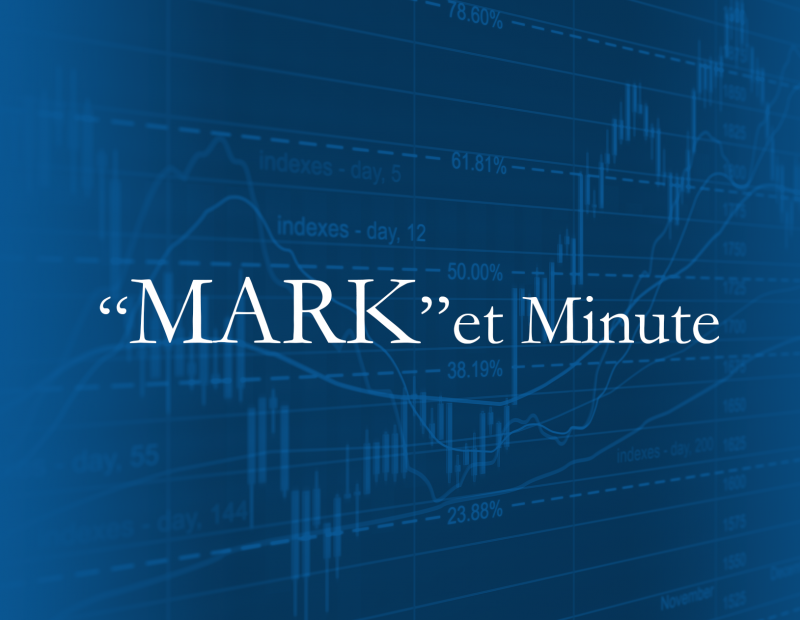Investment Commentary –September 27th, 2016
Market Indices as of Market Close September 27th, 2016
Dow 18,228 (4.61% YTD)
S&P 2,159 (5.67% YTD)
NASDAQ 5,305 (5.96% YTD)
Global DOW 2,446 (2,033 week low/high 2,489)
10-year Treasury 1.55 (1.32 52 week low /2.38 high)
Gold 1,330 ($1,053 52 week low /high $1,384)
Oil $44.56 ($33.28 52 week low /high $54.34)
Dow closes up more than 100 points after Clinton-Trump debate, consumer confidence
U.S. stocks closed higher Tuesday, with the Dow industrials rising more than 100 points after the first presidential debate between Democratic candidate Hillary Clinton and Republican contender Donald Trump and a number of stronger-than-expected economic reports.
The Dow Jones Industrial Average DJIA, +0.74% closed with a gain of 133.47 points, or 0.7%, at 18,228.30, led by gains in shares of Microsoft Corp. MSFT, +1.85% International Business Machines Corp. IBM, +1.81% and Nike Inc. NKE, -4.10% Walt Disney Co. DIS, -0.26% was the only decliner on the blue-chip average.
The S&P 500 index SPX, +0.64% rose 13.83 points, or 0.7%, to finish at 2,159.93. Tech and consumer-discretionary shares led the gainers, rising 1% or more, while utilities closed down 1.3% and energy shares fell 0.5%, thanks to a slide in oil.
The Nasdaq Composite Index COMP, +0.92% finished up 48.22 points, or 0.9%, at 5,305.71.
The advance in stocks suggests that U.S. equity markets are betting that Clinton benefited the most from Monday’s presidential debate. Stocks are rising on the prospect of a Clinton presidency because the Democrat is viewed as a known quantity while some view Trump as being more unpredictable—a bad thing for stock investors.
“Investors have a better idea about policies of Hillary Clinton, so any sign she is closer to the presidency is a boost for markets,” said Diane Jaffee, senior portfolio manager at TCW.
Fed’s Fischer says tighter labor market pushing up wages
The Federal Reserve should avoid raising interest rates too much, Fed Vice Chairman Stanley Fischer said on Tuesday, adding that gains in U.S. incomes are a sign that workers are benefiting from a tighter labor market.
“I don’t want to raise the interest rate too much,” Fischer told students at Howard University. He said rates should rise but that “I don’t know when” that should happen.
The U.S. central bank left rates steady at a policy meeting last week, but policymakers including Fed Chair Janet Yellen signaled a hike was likely by the end of the year.
Fischer, the Fed’s No. 2 official, said the recently-reported increase in median household income in 2015 was a sign that the low U.S. jobless rate was pushing wages higher.
“We are beginning to see the fruits of a higher pressure labor market,” Fischer said.
Oil down 3 percent as Saudi, Iran dash hopes for an Algiers deal
Oil fell about 3 percent on Tuesday after Saudi Arabia and Iran dashed market hopes that the two major OPEC producers would find a compromise this week at meeting in Algiers to help ease a global glut of crude.
Saudi Energy Minister Khalid al-Falih told reporters in the Algerian capital, where OPEC and other oil producers gathered for the Sept. 26-28 International Energy Forum, he did not expect an agreement to come out of the consultations on the last day of the meet.
He also said he did not think there was a need to significantly adjust or cut supply and that Iran, Libya and Nigeria should be allowed to produce at maximum levels seen in recent history.
“If you were looking for something dangerous from this meeting, this was it,” said Jim Williams, analyst at WTRG Economics in London, Arkansas. “Instead of cutting, they’re telling everybody to substantially increase supply.”
Iran, which has been trying to recapture oil exports lost to sanctions, rejected a Saudi offer to limit its output in exchange for reduced supply by Riyadh.
Iranian Oil Minister Bijan Zanganeh said the Algiers talks “is not the time for decision-making.”
He referred instead to OPEC’s formal policy meeting set for Nov. 30 in Vienna, saying: “We will try to reach agreement for November.”
The Algiers talks were OPEC’s second attempt at an output agreement after a failed round in Qatar in April.
THIS DAY IN FINANCIAL HISTORY: The New Ben September 27, 1995
The Treasury Department unveiled a new version of the $100 bill, complete with an off-center, but enlarged picture of Ben Franklin.
The views presented are not intended to be relied on as a forecast, research or investment advice and are the opinions of the sources cited and are subject to change based on subsequent developments. They are not a recommendation, offer or solicitation to buy or sell any securities or to adopt any investments.
http://www.reuters.com/article/us-usa-fed-fischer-idUSKCN11X1RS?feedType=RSS&feedName=businessNews
http://www.econedlink.org/economic-calendar.php?month=9
http://www.marketwatch.com/story/us-stocks-set-for-upbeat-open-as-markets-cheer-clinton-debate-win-2016-09-27
http://www.reuters.com/article/us-global-oil-idUSKCN11X03E?feedType=RSS&feedName=businessNews


Leave A Comment